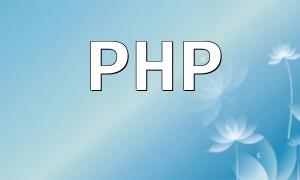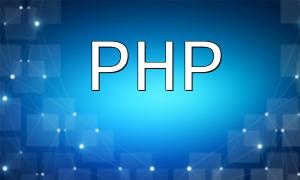Application and Advantages of PHP Frameworks in Large-Scale Distributed Systems
In modern internet applications, building efficient and scalable distributed systems is a key goal for many developers. PHP frameworks offer multiple advantages, including modular design, code reuse, scalability, and strong security. This article discusses how to use PHP frameworks, particularly Laravel, Symfony, and Yii, to build applications suitable for large-scale distributed systems.
Core Advantages of PHP Frameworks
- Modular Design: PHP frameworks break down applications into modular components, making the code easier to maintain and expand.
- Reusability: Frameworks provide a set of reusable components, reducing redundant coding work and speeding up development.
- High Scalability: PHP frameworks support load balancing and caching technologies, effectively addressing the challenges of high traffic volumes.
- Strong Security: With built-in security mechanisms like SQL injection prevention and session management, PHP frameworks provide a higher level of application security.
PHP Frameworks for Building Large-Scale Distributed Systems
- Laravel: As a feature-rich framework, Laravel offers a powerful ecosystem with tools for queuing, caching, and load balancing, ideal for rapidly building distributed systems.
- Symfony: Known for its high performance and customizability, Symfony is suitable for large enterprise applications, providing flexible component support to meet complex project needs.
- Yii: A lightweight and high-performance framework, Yii is ideal for systems that require efficient development and fast responses, offering a simple API and comprehensive documentation.
Practical Case of a Distributed E-Commerce Platform
Here’s a case study of a distributed e-commerce platform built with the Laravel framework, showing how microservices architecture and other technologies can enhance the platform’s scalability and performance:
- Microservices Architecture: The e-commerce platform is broken down into multiple microservices, such as product management, shopping cart, and order processing services, allowing independent development and scalability for each microservice.
- Service Discovery: By using Kubernetes, the platform achieves automated microservice discovery and management, ensuring stable interaction between services.
- Load Balancing: HAProxy technology is used for load balancing, ensuring stable operation of services under high concurrency.
- Caching Technology: Redis is used to cache data, reducing the pressure on the database and improving query performance.
Conclusion
PHP frameworks provide an ideal technical foundation for building large-scale distributed systems. By utilizing Laravel, Symfony, or Yii, developers can quickly build distributed applications with high scalability and performance. These frameworks not only offer the modularity, reusability, and security required for modern web applications, but they also help developers address complex business needs effectively.








